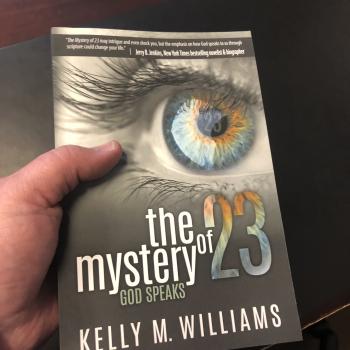During the National Hispanic Prayer Breakfast last week, President Obama said, "At critical junctures throughout our history, it's often been men and women of faith who've helped to move this country forward." Unfortunately, it appears that President Obama's deference toward religion has taken a turn toward extending the myth that religion was a steady force for progress when religion was, at best, a mixed blessing.
There are numerous famous historical examples of religious leaders in history who fought for changes that would benefit wider swaths of society. People like Gandhi, King, and, uh, . . . Well, maybe not that many famous ones, but there are lots of them, we're assured. However, it's only intuitive that faiths based on ancient texts with leaders who are in the seats of power are in fact most likely to maintain the status quo, not challenge it. It's consistently those who break with traditional faith who are the most likely leaders of progressive change.
This is readily exemplified in the current debates around same-sex marriage, equal rights for women, and the separation of church and state. It's a common narrative throughout our history: religious liberals and secular people join forces to challenge those whose only objection to progress is religious in nature.
Many leaders throughout American history who advanced positive change were not religious at all. Our very war of independence was instigated by Thomas Paine, a professed deist who scorned organized religion when he wrote his widely read pamphlet, Common Sense, yet he died an outcast for his nonbelief. The revolution may not have been successful if not for Ethan Allen, the military leader of the Green Mountain Boys, who captured a key British outpost. Allen, a deist, was hailed as a war hero, but also decried as a wicked detractor of Christianity.
The American civil rights movement is often credited to religious leaders, but that's not half the story. White Protestant church leaders, particularly Southern Baptists, imparted strong opposition to desegregation movements from their pulpits. Fearing that integration in public schools would go against "God's natural order," these clergymen struck fear into the hearts of parishioners by equating the struggle of equality for African-Americans to communism, enlisting the fear-mongering borrowed from the Red Scare.
Meanwhile, atheist A. Philip Randolph successfully campaigned against segregation of the military, labor unions, and government employees; humanist James Farmer initiated and organized the Freedom Riders, and freethinker Bayard Rustin was among the first civil rights activists to suggest a "March on Washington" for equality. However, Randolph and other young black leaders, looking to network with others in social clubs for African-Americans, were frequently rejected because the clubs were centered on religion.
Only a few decades after African-Americans successfully gained equal rights, many black churches stand as the predominant religious opposition to immigration reform, as leaders insist that an influx in Hispanic immigrants will take away jobs from African-Americans. As the proposed reforms will likely encourage immigration from Latin America, some also fear that political power will shift toward Hispanics as their minority surpasses the black minority. Meanwhile, the predominantly humanist Unitarian Universalist Association protested the anti-immigrant policies in Arizona, where UUA president Peter Morales made headlines getting arrested for his civil disobedience.
Long before this country was considering immigration reform, anti-suffragists drew much of their fodder from the biblical notion that women should be subservient to men, tend to domestic roles like housework and raising children, and not entangle themselves in the messiness of politics. Catholic churches in particular opposed this disruption of traditional gender roles, particularly since most of the suffragettes were either freethinkers or from moderate Protestant denominations.
Meanwhile, Elizabeth Cady Stanton and Susan B. Anthony pioneered reforms for women's equality with the National Woman Suffrage Association, which aimed to give women the vote, equal property rights, employment opportunities, and parenting rights. Stanton, an agnostic, and Anthony, a Unitarian, both grew more opposed to organized religion throughout their lives, and both were harshly criticized for their positions on religion and traditional Christianity. Stanton's publication of The Woman's Bible brought her notoriety in religious circles, as it asserted that the Bible intentionally kept women oppressed. Later women's rights leaders like Faye Wattleton, Gloria Steinem, Kate Michelman, Gloria Feldt, and others shared their humanist leanings.
American history is peppered with both religious and secular leaders, but the claim that spiritual leaders and faith-based principles here were consistently the backbone of progress is a revisionist sort of history indeed. Nontheist activists willing to put their names, their social standing, and sometimes even their livelihoods on the line for what they understood to be right, prove the falsehood of any such claim. Perhaps a Nontheist History Month is needed because it's not faith, but reason and compassion that drove this country forward, raising the bar for the humanity.
5/22/2011 4:00:00 AM





